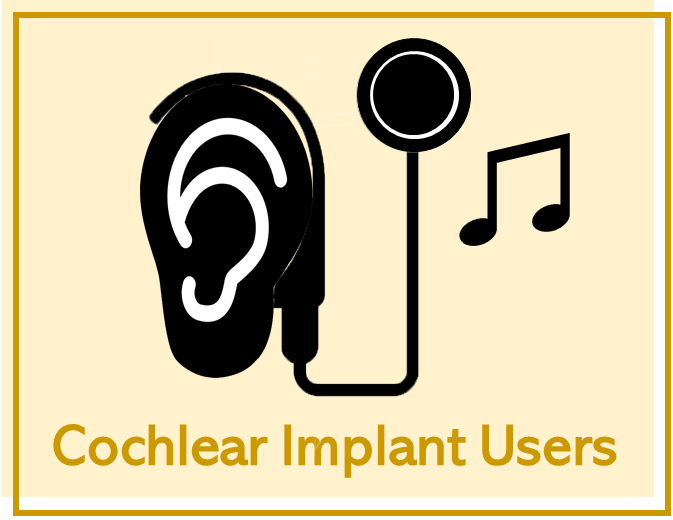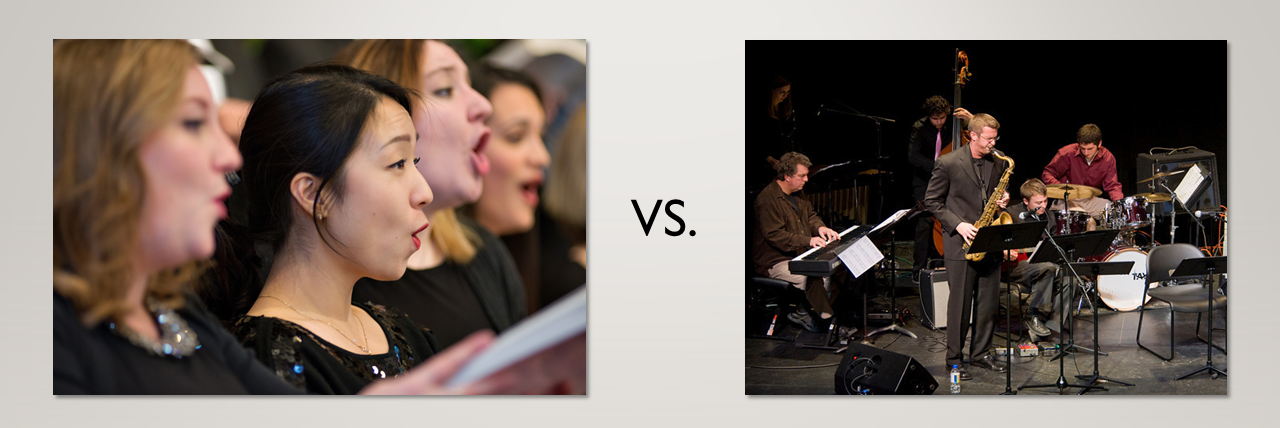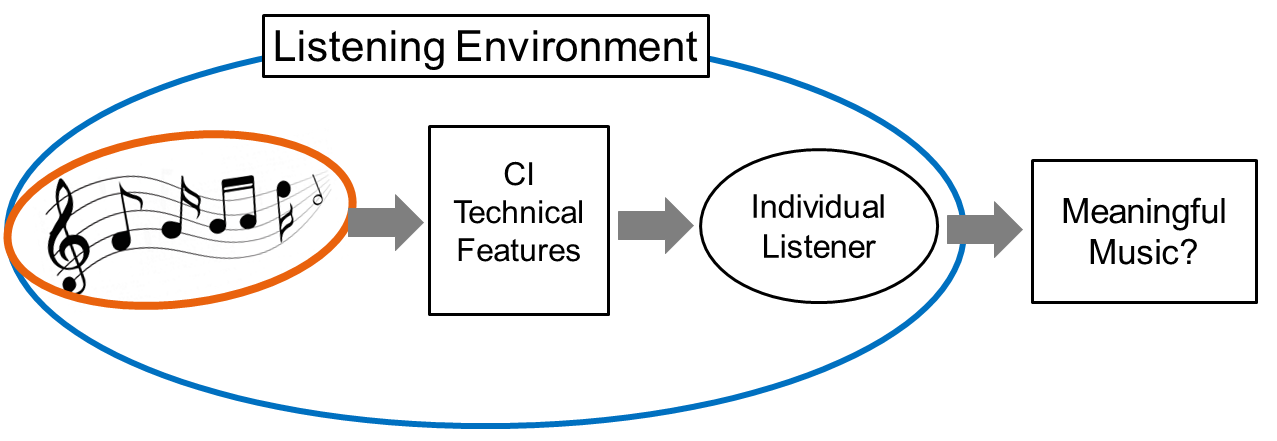See also: Articles on Music, Hearing Loss, and Hearing Devices
As you read this website, keep in mind the following:
-
People with hearing loss can differ in many ways.
-
Some information may be more similar to your situation.
-
Pick and choose the information most useful for you.
Different Musical Sounds Affect Listening Enjoyment of Cochlear Implant (CI) Users
1, 2
Research studies and cochlear implant (CI) users report that some musical sounds are easier to understand:
-
Strong and clear beat or rhythm
-
Lyrics with quiet accompaniment
-
Music played or sung by fewer musicians
-
Simpler melodies, harmonies, and rhythms
-
Music that has lots of repetition
-
Music that isn't too loud
-
Music with a slow or moderate tempo
-
Music that you remember from prior to hearing loss
-
Keep in mind that music changes over time. Some parts of one song may be easier to enjoy and understand than other parts.

Vocal music and instrumental music.
-
Some implant users enjoy vocal music because they can follow the words. Others prefer instrumental sounds.
-
Some singers are easier to understand than others.
-
Some instruments sound better than others. CI users differ in which musical instruments they prefer.
-
Music performed by fewer musicians may be easier to perceive.
-
Some musicians play with more skill and better balance than others.
-
Some trial and error are likely needed to figure out what music sounds best to you at this point in your implant use.
Setting realistic expectations is important.
-
Your musical preferences may change after your CI. [Click here to view cochlear implant technology page]
-
Some music sounds better than other music. Remember, people with natural hearing don't like all music, either.
-
Trial and error may be needed to find the music most enjoyable to YOU!
-
Not all cochlear implant users like the same music.
For me, music is pleasant when I know the song and lyrics and only when one or two instruments are playing.
I love simple harmonic progressions. It adds such flavor and color to the song, even if I never fully identify all of the harmonies at play.
Music listening may improve with special approaches and practice. [Click here to view music training and listening practice page]
-
Listen with your eyes as well as your ears.
-
Try watching the musicians or reading the music as you listen.
-
-
Practice listening to the same song many times.
-
Start listening to simple music with a clear beat.
-
Try familiar music that is also simple.
-
Practice listening when your mind is fresh---not when you are exhausted and feeling overwhelmed.
-
Experiment with different assistive technologies.
-
Examples include Compilot, mini mics, roger pens, and phone clips.
-
-
Adjust CI settings as the music changes.
-
Learn how to adjust device volume and sensitivity.
-
-
Strategically choose where you listen to music.
-
Choose a quiet room with good acoustics.
-
Close proximity to the musician(s) can help with visual cues.
-
-
Use high-quality sound equipment and speakers.
-
Be patient with yourself through the process.
-
Progress takes time and requires ongoing persistence.
-
With the instruments, I enjoy listening several times and discovering new aspects in a song that I didn't catch the first time.
I try to position myself where I can see the singers, even if there is captioning, so I can follow along. I tend to move up front and that seems to help.
Click here to review references used in preparation of this website.
1. All images on this website are used under Creative Commons or other licenses or have been created by the website developers.
2. Click here to access the sources of images on this page.
